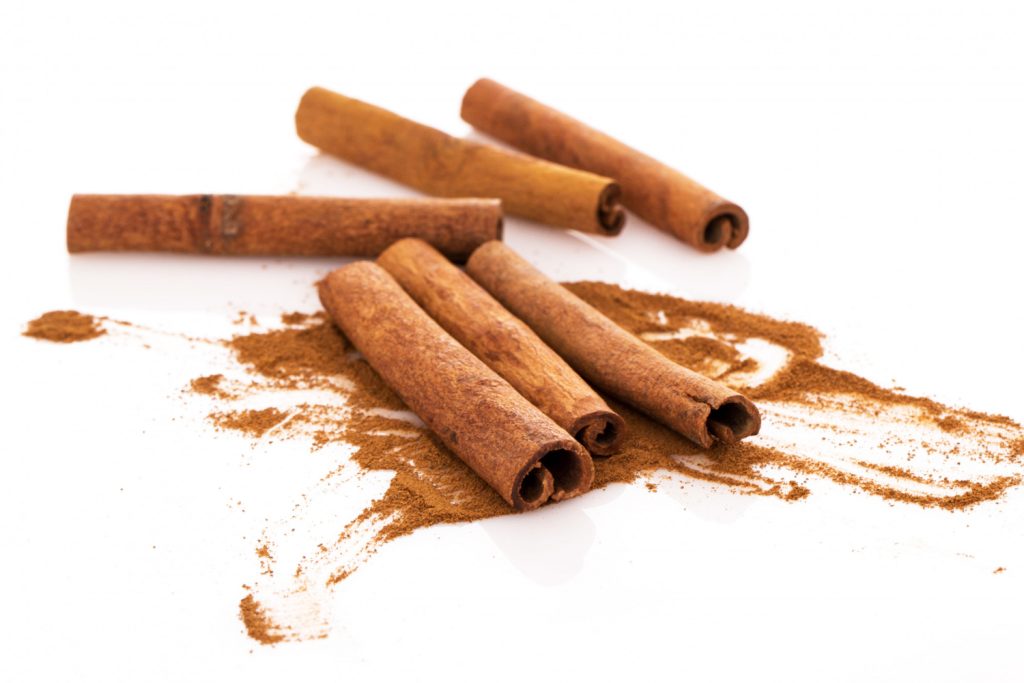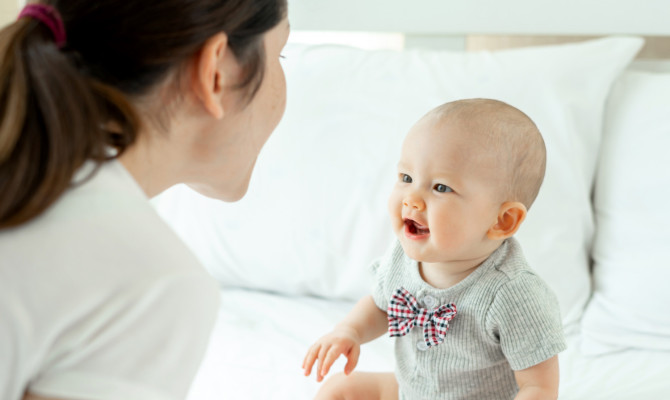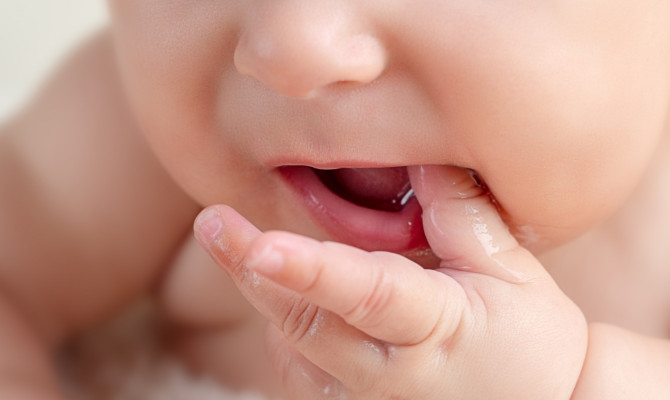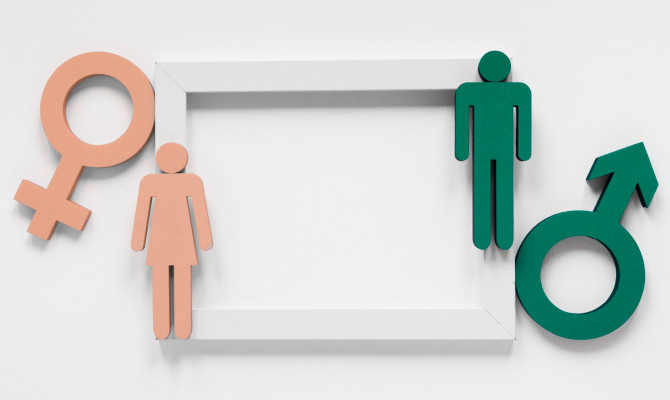Cinnamon & Pregnancy: Can Cinnamon Cause A Miscarriage?

- Pregnancy
- 13 Oct 2023
Overview
Cinnamon & Pregnancy
Cinnamon is a popular, sweet, flavorful spice from the Lauraceae family and is indigenous to Southeast Asia, South America, and the Caribbean. Cinnamon boosts the taste of several different meals and beverages. Besides flavoring different food items, cinnamon also has certain health benefits that one cannot ignore. As cinnamon is an influential spice, most people are anxious to know whether it is good to consume during pregnancy. However, cinnamon is safe during pregnancy if one considers certain aspects while eating 1 Overview | Researched based study from National Institutes of Health.

The article will describe cinnamon safety during pregnancy, its benefits, side effects, and precautions, and also provide a list of specific things that one should avoid during early pregnancy. The article will also clarify specific popular queries that people would like to know about cinnamon and pregnancy. So, continue reading to get a complete understanding of cinnamon in pregnancy.
Cinnamon & Pregnancy
Can Cinnamon Cause a Miscarriage?
- We all know that eating raw eggs, underdone meals, and mercury fish can harm the growing fetus. However, cinnamon does not fall under such foods.
- Yet, one should never forget to consume cinnamon in small amounts during pregnancy as excess cinnamon consumption can cause specific adverse effects viz; mouth sores, liver destruction, and digestive issues 2 Cinnamon and Pregnancy | Researched based study from Multidisciplinary Digital Publishing Institute .
Cinnamon supplements
- One should always avoid taking cinnamon supplements during pregnancy.
- It is because the cinnamon supplement contains a high amount in concentrated form, and consuming it during pregnancy can lead to overeating of the spice and, thereby, pregnancy complications.
- Some health centers recommend pregnant women consume cinnamon in moderate amounts to avert potential risk 3 Cinnamon & Pregnancy | Researched based study from National Institutes of Health.
Cinnamon tea during the first trimester of pregnancy
- People make cinnamon tea from the tree’s outer covering, which is curved to form a small flak.
- According to the United States Department of Agriculture, taking half a teaspoon of cinnamon is relatively safe.
- Cinnamon teas contain a very minute amount of cinnamon in each cup to cause any harm. In addition, it contains calcium, potassium, and iron needed for a healthy pregnancy.
- Thus, cinnamon tea is safe and beneficial when consumed in a modest amount (1 cup) rather than several cups daily.
- There is limited research to prove if several cups of cinnamon tea are detrimental to sustaining the pregnancy. So, consume in modest amounts and stay on the safe side 13 Cinnamon and Pregnancy | Researched based study from National Institutes of Health .
Benefits
Cinnamon Benefits During Pregnancy
The health advantages of cinnamon for pregnant women are as follows-
- Lowers infection risk
- Reduces blood pressure
- Decreases pain and swelling
- Regulates blood sugar
Lowers infection risk
- Pregnant women are at increased risk of getting infections, viz; flu, due to the weakening of the body’s immune response during pregnancy.
- Cinnamon boosts the body’s immune response to combat infections and maintain a fit health.
- The polyphenols in cinnamon destroy the body’s harmful substances that cause ailments.
- Moreover, cinnamon’s antioxidants promote the body’s immune functioning and defend the body from microbial infections, viz., bacteria and viruses 5 Benefits | Researched based study from National Institutes of Health.
Reduces blood pressure
- Few studies support cinnamon in regulating the body’s blood pressure level.
- A research study has indicated that cinnamon decreases the blood pressure levels in individuals with type 2 diabetes 6 Benefits| Researched based study from ScienceDirect.
Decreases pain and swelling
- During pregnancy, there is an increase in the woman’s body weight, which in turn puts additional pressure on the legs and joints, causing soreness and puffiness.
- The anti-inflammatory property of cinnamon decreases the soreness and swelling of the muscles and joints 7 Benefits | Researched based study from National Institutes of Health.
Regulates blood sugar
- For maintaining a healthy pregnancy, blood sugar regulation plays a vital role.
- In the United States, gestational diabetes is prevalent in pregnancy, impacting around 10% of the population.
- Gestational diabetes is when the body has increased sugar levels during pregnancy 8 Benefits | Researched based study from Centers for Disease Control and Prevention .
- The cinnamon’s polyphenol increases the body’s insulin sensitivity to utilize glucose appropriately, thus controlling blood sugar. Insulin sensitivity is the body’s capability to use glucose effectively 9 Benefits | Researched based study from Taylor and Francis Online .
Does cinnamon tea cause labor?
- Most people believe that spicy food induces labor (uterine contractions). But to date, no scientific proof indicates that cinnamon causes labor.
- Cinnamon tea in moderation is safe during pregnancy, but one should avoid consuming it in considerable amounts to avert potential risks 10 Benefits | Researched based study from National Institutes of Health .
Side Effects
Adverse Effects of Cinnamon During Pregnancy
Some people might encounter unfavorable effects from cinnamon consumption during pregnancy. Some pregnant ladies might experience a sensitivity reaction in various body parts with the following symptoms-
- Itchiness in tongue and mouth
- Skin reddening
- Shortness of breath
Moreover, people eating cinnamon in huge quantities can have –
- Decreased platelet count
- Abdominal discomfort
- Burning sensation in the chest region.
Additionally, people on anticoagulant drugs must avoid consuming cinnamon as it might enhance the chance of profuse bleeding 11 Side Effects | Researched based study from ScienceDirect .
Causes
What can Cause Miscarriage in Early Pregnancy?
In the first trimester, a chromosomal abnormality (genetic anomaly) has a high chance of having a miscarriage in early pregnancy.
Several other factors that can cause miscarriage in early pregnancy are listed below-
- Increased age
- Hormonal imbalance
- Certain infections
- Uterine abnormality
- Incompetent cervix (cervix gets dilated and open during early pregnancy)
- Improper egg implantation into the uterine wall
- Kidney problem
- Heart disease
- Uncontrolled blood sugar
- Thyroid issue
- Malnutrition
- Smoking
- Alcohol consumption
- Radiation viz; X-ray 14Miscarriage Causes | Researched based study from National Institutes of Health .
Which food can cause miscarriage?
Not all food is good for maintaining a healthy pregnancy. Some foods to avoid during the pregnancy period are listed below-
Plant sources:
- Papaya
- Pineapple
- Aloe vera
- Sprouted potatoes
- Raw sprouts
- Drumstick
- Wild apples
- Spices viz; garlic, fenugreek
- Sesame (with honey)
- Unwashed fruits and veggies
- Prepackaged salads
Animal sources:
- Crabs
- Raw eggs
- Animal liver
- Underdone fish
- Mercury rich fish viz; tuna, mackerel
- Unpasteurized milk products
- Smoked/Refrigerated seafood
Other products:
- Caffeine
- Alcohol
- Energy drinks
- Junk food
- Processed food 12 Miscarriage Causes | Researched based study from ScienceDirect .
Precautions
Things to Avoid in Early Pregnancy
A few things that one should avoid to maintain a healthy pregnancy are listed below:
Cats
- Humans can get toxoplasmosis infection from cats. The parasite causing toxoplasmosis is usually present in the cat feces.
- Although the chance of getting the infection is low in pregnancy, if it occurs, it impacts the fetus and causes a miscarriage.
- Some common symptoms of toxoplasmosis are-
- Throat pain
- Pain in muscles
- Fever
- Cold and cough
Cleaning products
- While using cleaning products during pregnancy, one must ensure for any alerts for pregnant ladies on the product label.
- One must always do the cleaning while keeping the windows wide open, as some products might contain a material known as naphthalene.
- If exposed to massive naphthalene quantities, pregnant women can get hemolytic anemia. Hemolytic anemia is a blood disorder in which the red blood cells get damaged more quickly than usual.
- Some signs of hemolytic anemia are as follows-
- Nausea and vomiting
- Appetite loss
- Extreme tiredness
- Diarrhea (watery stool)
Massage and acupuncture
- Pregnant women must avoid taking massages in the abdominal area during the initial three months of pregnancy.
- Acupuncture, however, is safe during pregnancy, but one must get it done by a skilled professional with adequate experience. Always notify the expert regarding the pregnancy, as specific points pose a danger during pregnancy.
Laborious activity
- One should remain physically active to sustain a healthy pregnancy but not take up harsh exercise that puts pressure on the abdomen.
- Always take up modest exercises such as light aerobics, yoga, and walking for around 20 to 30 minutes to stay fit and relaxed and avoid back soreness.
- Few researches indicate that it is safe to color the hair during pregnancy. Yet, putting Henna during pregnancy is relatively safer than chemical hair dyes.
- However, some studies suggest that specific hair dyes contain a chemical that might affect a healthy pregnancy 15Things to Avoid | Researched based study from National Institutes of Health .
Alcohol
- Alcohol can cause massive harm to the growing fetus, so pregnant women must strictly avoid taking alcohol during pregnancy.
Jacuzzi (hot tubs)
- Physicians advise not to take heated facilities viz; Jacuzzi, steam bath during pregnancy to avoid the chances of body dehydration, lightheadedness, and additional harm to the growing fetus.
- There is insufficient evidence that tanning beds are safe during pregnancy.
- Tanning beds emit ultraviolet radiation similar to that of the sun. Research indicates that high amounts of UV rays can cause folic acid deficiency. Folic acid is vital for sustaining a healthy pregnancy 16Things to Avoid | Researched based study from National Institutes of Health.
Painting
- Avoid painting or renovating the house during pregnancy times. Chemicals in paints and lead exposure during house renovation can severely threaten the growing fetus during the first three months of pregnancy. It is best to wait for 14 weeks of pregnancy before house renovation and painting 17Things to Avoid | Researched based study from National Institutes of Health .
X-rays
- One should avoid taking X-rays during pregnancy to prevent birth anomalies and other potential risk 18Things to Avoid | Researched based study from National Institutes of Health .
FAQs
Frequently Asked Questions on Cinnamon & Pregnancy
Q. How much cinnamon is safe during pregnancy?
- To date, there is no recommendation on doses of cinnamon for pregnant women, nursing mothers, and other healthy adults.
- Research studies have indicated that people who consumed six grams of cinnamon daily for six weeks had a decreased fasting blood sugar level.
- However, no other studies have indicated a risk-free daily amount of cinnamon, so individuals must always consume cinnamon in modest amounts during meals 4 FAQs | Researched based study from National Institutes of Health.
Q. What happens if you eat a lot of cinnamon during pregnancy?
- There is no scientific proof that cinnamon is highly harmful to pregnant women.
- However, cinnamon is pretty safe in food amounts in pregnancy. But suppose one has crossed the pregnancy due date and wants to include cinnamon in increased quantities in diet to initiate labor.
- In that case, it is best to consult the gynecologist to get proper advice before having it.
Q. Can cinnamon affect early pregnancy?
- Cinnamon is safe when taken in food, but high doses might impact early pregnancy.
- However, research is needed to validate the effect of high-dose cinnamon in early pregnancy.
Takeaway
Cinnamon During Pregancy: Safe in Moderate Amounts
- Cinnamon is a flavorful spice in various foods, meals, and beverages.
- Cinnamon has several health advantages that can promote a fit pregnancy when consumed in moderate amounts.
- However, people on particular medication must avoid the spice altogether to prevent unnecessary complexness.
Any feedback on this article?
 This Articles content was accurate
This Articles content was accurate Very Informative Article
Very Informative Article I have a question or a comment
I have a question or a comment
 This article contains inaccurate content
This article contains inaccurate content This article was not helpful
This article was not helpful I have a question or a comment
I have a question or a comment
We appreciate your helpful feedback!
Checkout our social pages
References
-
National Institutes of Health
Overview
-
Multidisciplinary Digital Publishing Institute
Cinnamon and Pregnancy
-
National Institutes of Health
Cinnamon and Pregnancy
-
National Institutes of Health
FAQs
-
National Institutes of Health
Benefits
-
ScienceDirect
Benefits
-
National Institutes of Health
Benefits
-
Centers for Disease Control and Prevention
Benefits
-
Taylor and Francis Online
Benefits
-
National Institutes of Health
Benefits
-
ScienceDirect
Side effects
-
ScienceDirect
Miscarriage Causes
-
National Institutes of Health
Cinnamon and Pregnancy
-
National Institutes of Health
Miscarriage causes
-
National Institutes of Health
Things to avoid
-
National Institutes of Health
Things to avoid
-
National Institutes of Health
Things to avoid
-
National Institutes of Health
Things to avoid

































